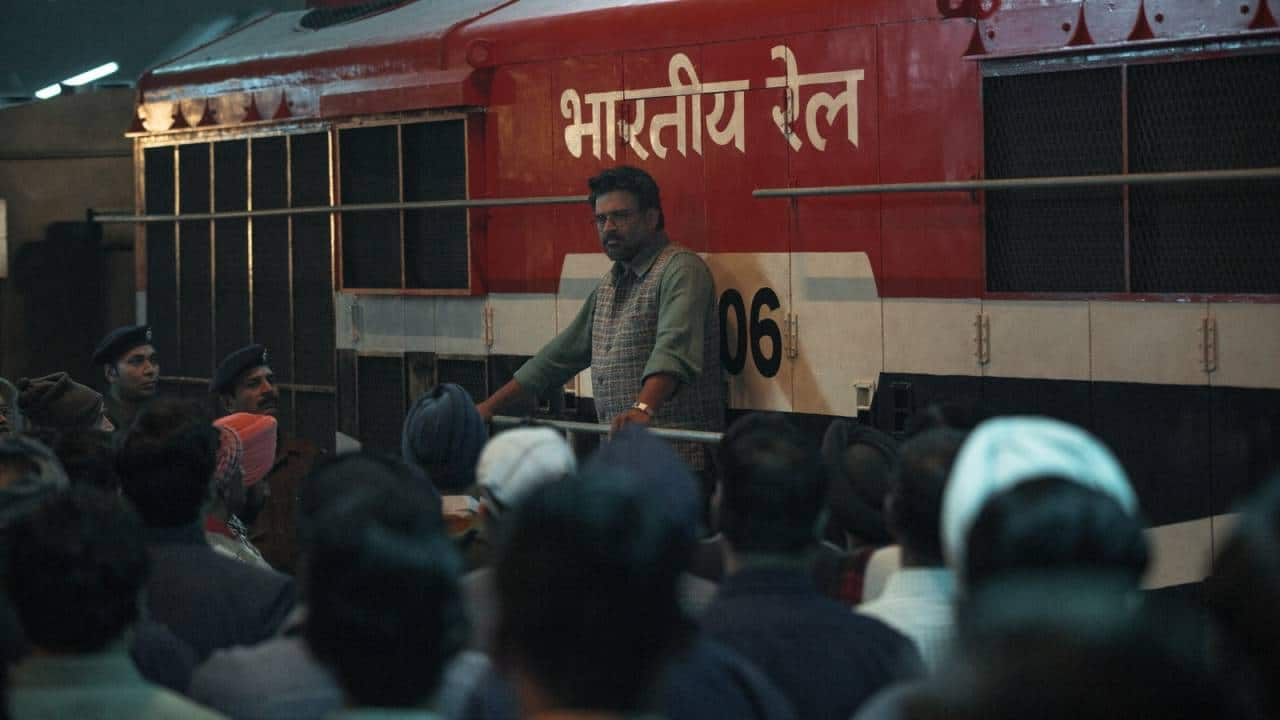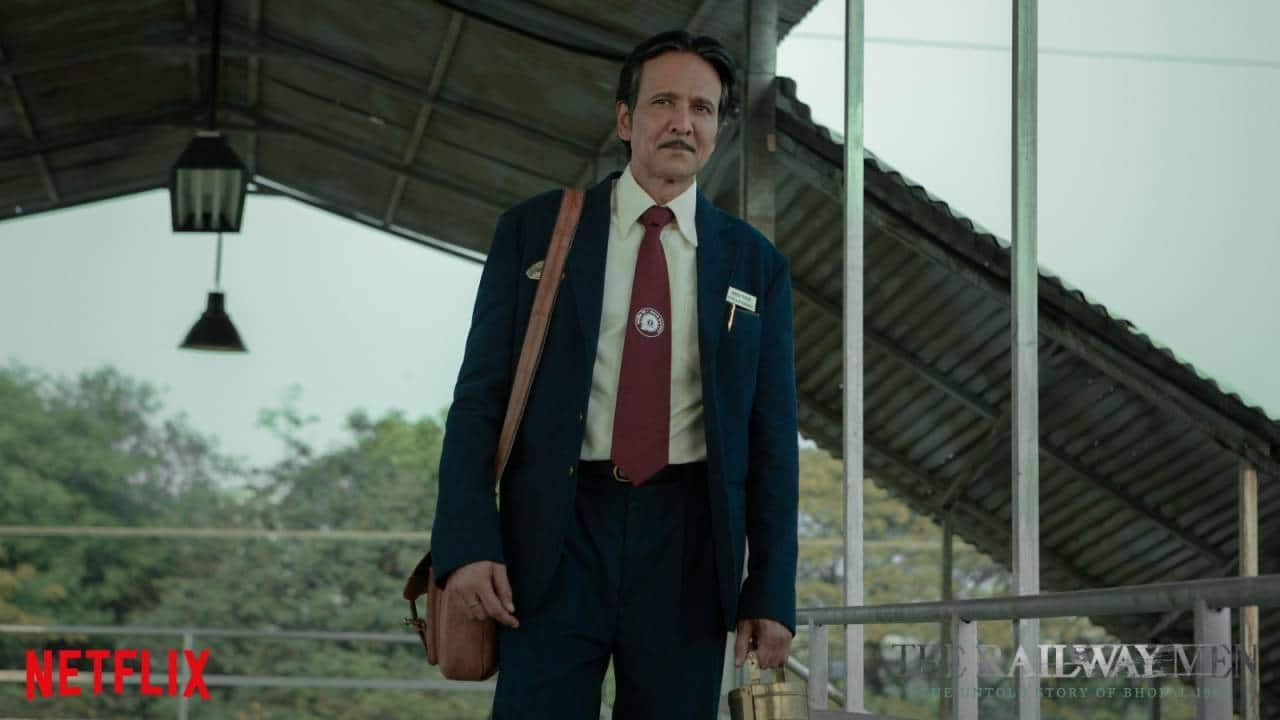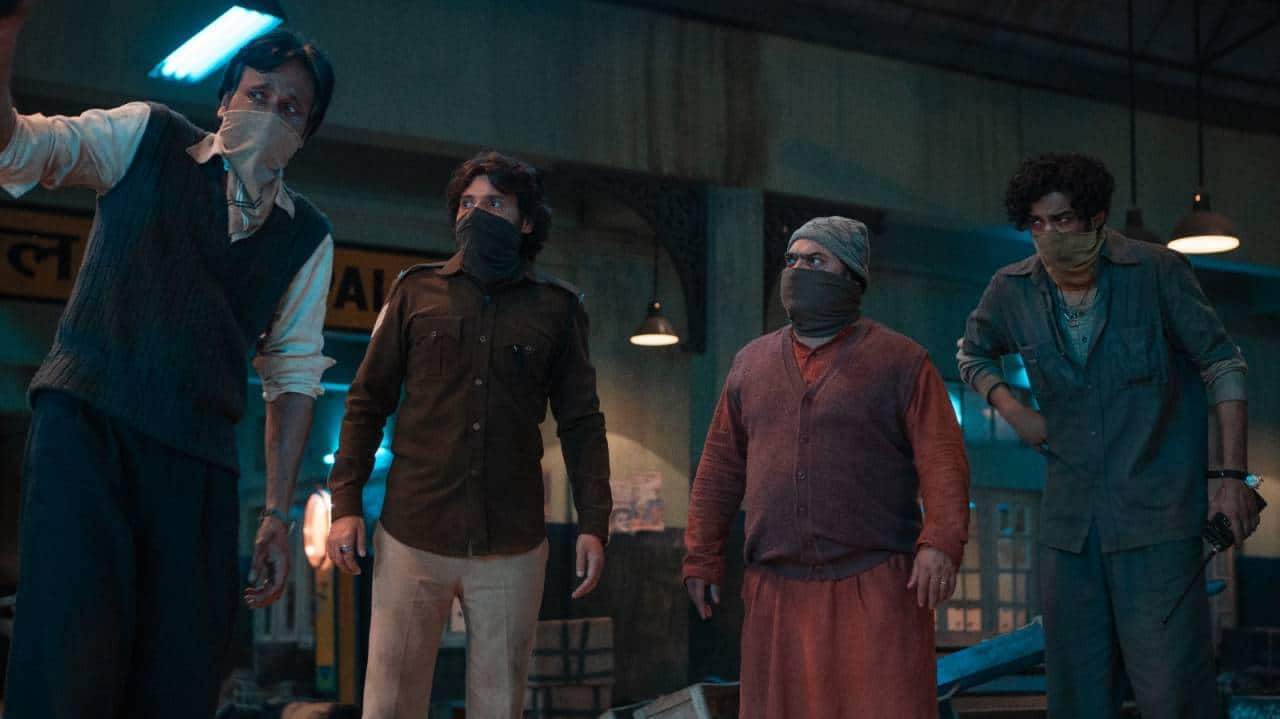



Heroes don’t always wear capes and in the forthcoming Netflix series The Railway Men: The Untold Story of Bhopal 1984, it is the ordinary men from the Indian railways who turn out to be the true heroes in the face of the worst industrial disaster this country has seen. Inspired by true stories from the night of December 2-3, 1984, when toxic gas leaked from the Union Carbide factory in Bhopal, Madhya Pradesh, the four-episode series is backed by YRF Entertainment with a stellar cast, including Kay Kay Menon, R Madhavan, Divyenndu and Babil Khan, among others. Debutant director Shiv Rawail and the cast of the show discuss what went behind the making of the series, which releases on November 18. Edited excerpts:
After being an assistant director on films such as Fan (2016), Befikre (2016) and Dhoom 3 (2013), was the shift to The Railway Men very drastic? How did this project fall into place?
Shiv Rawail: I don’t think it is a shift. As an AD, you try to work on different kinds of projects and learn the ropes of filmmaking from different filmmakers. There are a number of stories I want to tell as a filmmaker. I am a big fan of the mainstream films and will hopefully make them as well. I don’t want to restrict myself to a particular kind of film or genre. I want to make engaging, compelling stories and that is the pure heart of artists and filmmakers. The Railway Men was a one-page script which our writer Aayush Gupta had and I was mind-blown that someone has told a story of the darkest night in Indian history from the lens of courage, hope and compassion and it is riveting and thrilling. I took it to the studio and to Aditya Chopra, who was also blown away by it and said that this story needs to be told.
Mumbai Diaries focussed on the doctors during the 2008 Mumbai attacks, while The Railway Men looks at the men posted at the Bhopal railway station who went out of their way to save lives that fateful night. As a maker, how fascinating is this lens?
Rawail: The lens is what attracted Aayush, me, the studio, and then, subsequently, the actors. Everyone who read it was moved by it. It ignites the thought in your brain that every incident such as this would have had normal people who were not bound to save people by duty or by the sheer nature of their job. These guys work in a government organisation. For them, transporting people from one place to another comes with a caveat of safety. That was interesting to see.
 R Madhavan in a still from the forthcoming 'The Railway Men'. (Image courtesy Netflix)
R Madhavan in a still from the forthcoming 'The Railway Men'. (Image courtesy Netflix)
What was about your respective roles and the story that made you greenlight it?
R Madhavan: In Bhopal that night there was no safehouse. If you were trying to help people, there was no assurance that you would survive. You might just be heading to your death because there was no safety or training. Imagine the chaos and the sheer magnitude of the mayhem when you don’t know what is happening and people are dying in front of your eyes. In the middle of this chaos, there were these brave people who thought that irrespective of what happens to them, they will go out there and save people. You have to be made of a completely different DNA to be able to do this and think this as part of your karma (life mission). I thought this comes closest to showing the pure courage and grit of the Indian railway men and for that reason alone, this is a unique story.
Divyenndu: It was an amalgamation of things for me: what’s written on paper, Shiv and his clarity of vision and who is backing the project. You need people who understand what they are making so that they can execute it well. Then comes the character which I really loved. He is pretending to be someone else. How he changes from being a bandit to realising that he needs to step up and be with these people. One of my close friend’s father was at the Bhopal station that night. He didn’t survive but I have heard stories from my friend. It made so much sense for me to come onboard for this because it is an important tale for our times.
 Kay Kay Menon in a still from 'The Railway Men'. (Image courtesy Netflix)
Kay Kay Menon in a still from 'The Railway Men'. (Image courtesy Netflix)
Kay Kay Menon: I have done a film earlier called Bhopal Express (1999) and so, I was aware of the mammoth nature of the tragedy. What drew me was this new aspect of some brave people and especially the railways. The railways have been an integral part of every Indian’s life and seldom do we realise the kind of focus they put on safety apart from making us reach our destinations on time. Each one has to be vigilant all the time. We take this organisation for granted and in this show, it is the railways in the fore. Those men managed to go beyond what they were supposed to do and the courage and valour they showed was extraordinary.
Babil Khan: The first thing that attracted me was the story and the way in which this show views heroism and shows that heroes don’t always wear capes. Each of us has a hero inside them and it is when crisis comes and the decisions you take that makes you a hero or not. Second, I was not in a position to say no! I was filming for Qala and Shiv had not even seen my work. It was a leap of faith for YRF to cast me. Also, Shiv had this clarity of vision with which he was going on this pursuit. He trusted me even when I wasn’t sure about myself.
 A still from 'The Railway Men'. (Image courtesy Netflix)
A still from 'The Railway Men'. (Image courtesy Netflix)
Tell us about the making of the world of The Railway Men and what lengths you went to make it look authentic?
Rawail: The producers understood that we needed a certain budget to achieve what we wanted to. We worked with the best crew, whether it was production design, cinematography, costume, or hair and make-up who really understood this world and then got into the details we wanted to go into. It was hard work! We created the railway station and all the moving parts. Those engines don’t exist any more and so they were made from scratch. From the posters on the station to the signboards to the scooter Kay Kay sir drives, it had to have an authentic look. For instance, my production designer laid out the tiles on the platform first. When I told him they will break in the coming days, he said on a real station, tiles would be broken. The smaller things make for the bigger picture.
Menon: For me, the script was enough. I chew the director and writer’s brains and I read the script and that’s all. Going out of that is going out of the vision of what he wants. I try to understand as much as the vision of the person making it and how I can contribute. The more restricted I am, the better I find it.
Divyenndu: There was no need for me to go and talk to the people because my character is the foreign element in the story. Shiv did share some images of the factory where the gas leak happened and that was enough to tell me what might have happened there.
Madhavan: It was the same for me. My character was disassociated from the place and I didn’t want the history to burden my performance. I am not telling the story. I am being an integral pixel of the story and I want to make sure the glow is correct instead of having my own little light on it.
 Kay Kay Menon and Babil Khan in a still from 'The Railway Men'. (Image courtesy Netflix)
Kay Kay Menon and Babil Khan in a still from 'The Railway Men'. (Image courtesy Netflix)
Khan: My character is the only one who really needed to go there because he grew up in Bhopal. I went there after I had done my dialect training and met the chaiwalas, the people in the basti and registered the dialect and what I had to do to get close to that. I visited the factory and sensed the energy of the space to understand what was going on.
Discover the latest Business News, Sensex, and Nifty updates. Obtain Personal Finance insights, tax queries, and expert opinions on Moneycontrol or download the Moneycontrol App to stay updated!
Find the best of Al News in one place, specially curated for you every weekend.
Stay on top of the latest tech trends and biggest startup news.